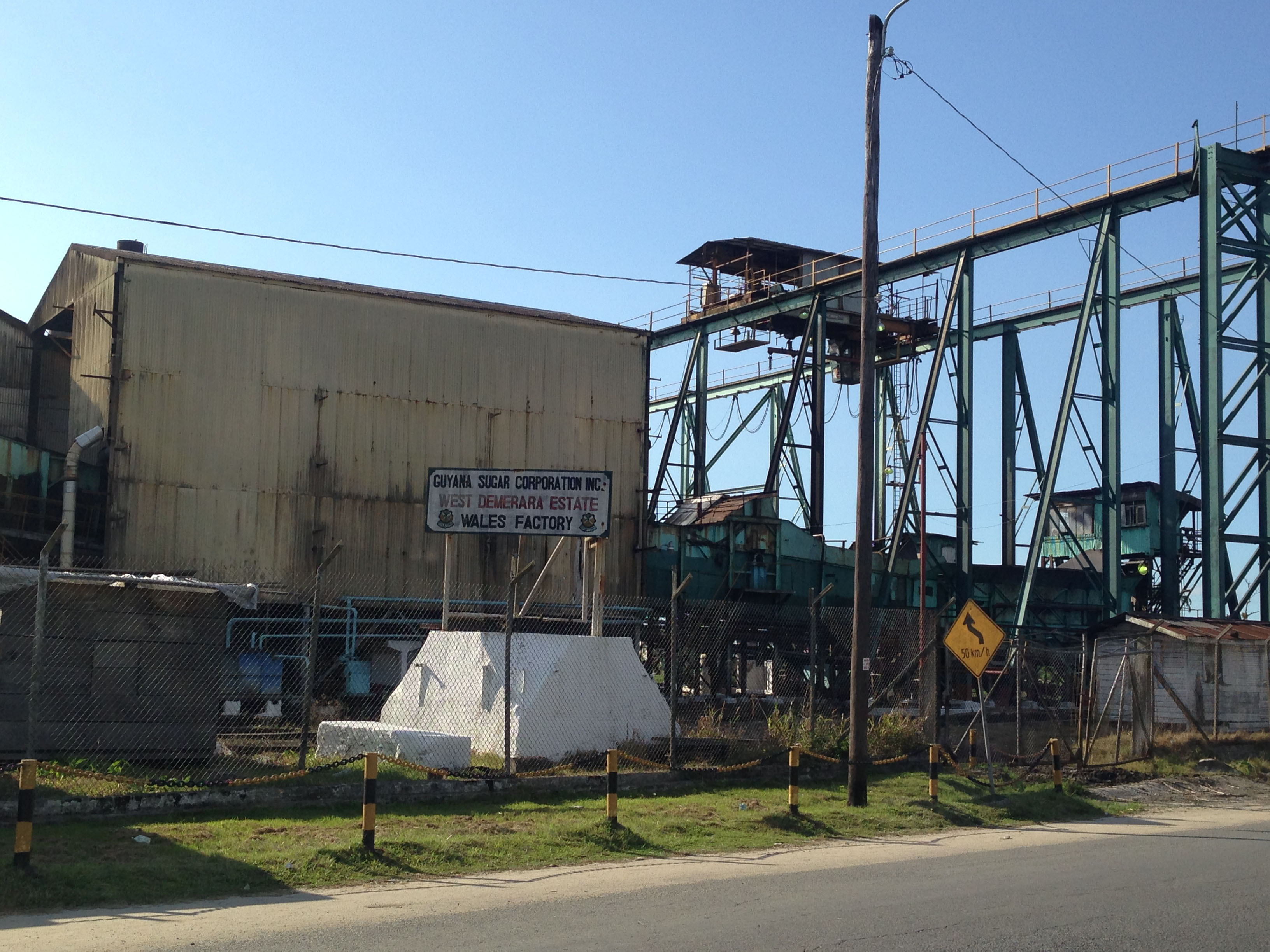Wales Sugar Estate is to be closed by next year the government announced yesterday, the first major decision it has taken on the beleaguered industry which has seen slumping production over the last decade and swingeing debt.
The statement yesterday by the Ministry of Agriculture on the closing came as a surprise since the Commission of Inquiry into the Guyana Sugar Corporation (GuySuCo) had not recommended the closure of any estate although Wales and Uitvlugt on the West Demerara were seen as the two most vulnerable.
Contending that it was impossible to make sugar production at Wales viable, It was argued in the statement that closing the estate would allow improvements to be carried out on better performing estates
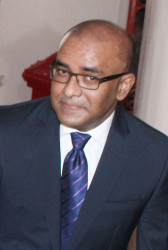
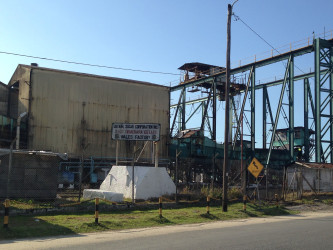
The statement by the Agriculture Ministry implied that the shuttering of the estate was initiated by the new Board of Directors of GuySuCo along with its Interim Management Committee. The last sugar estate to be closed was 30 years ago at Diamond, East Bank Demerara while Enmore and La Bonne Intention were merged in 2011 and became known as the East Demerara Estate.
According to the Ministry statement, the Wales estate is projected to operate at a loss of between $1.6B to $1.9B in 2016. With immediate effect, there will be no further land preparation and planting. As the estate’s cultivation is reaped, the land would be retired and kept for diversification ventures, the statement said. The factory will continue to operate throughout 2016 but will cease operations at the end of this year’s second crop. From next year, farmers’ cane will be milled at the Utivlugt factory. The statement said that field workers at Wales will be utilised by Uitvlugt “up to the extent of suitable vacancies on that location. Surplus labour would have to be made redundant”. The statement added that the same principles will apply to the other departments.
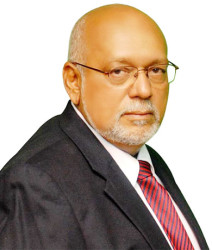
In 2014 the Wales estate operated at a loss of $1.8B while Skeldon operated at a loss of $4.2B and Enmore at $2.8B, according to data provided by the Commission of Inquiry (CoI) into GuySuCo.
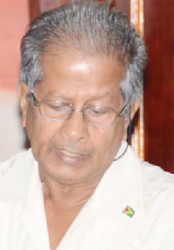
The statement said that Wales, by far, is the estate in the poorest shape. The statement said that 60% of its drainage and irrigation infrastructure is run down while 75% of bridges are in poor condition. In addition the cultivation is also in a poor state and the factory is old and requires significant investment. “The Ministry of Agriculture acknowledges the fact that the investment required to refurbish Wales estate remains significant and the finances are simply not available”.
It further argued that “The practice of diverting scarce funds from the good estates to keep the poor performers in operation can no longer be tolerated as the survivability of these estates could not now be guaranteed”.
It also stated that GuySuCo will be exploring the “feasibility of alternative ventures” that can be created utilising lands at Wales. It said however that the key criterion for such projects would be wealth creation and generation of jobs. The first of such projects could begin by October 1st this year, the statement said.
The statement also said that the sugar corporation’s course of action had no relation to the recommendations of the Commission of Inquiry into GuySuCo. These recommendations have been paired with other initiatives contained in GuySuCo’s Budget and 2016 Action Plan. This plan has not been released to the general public.
Shocked
President of the Guyana Agricultural and General Workers Union (GAWU) Komal Chand told Stabroek News yesterday that he was shocked that this was how the government would notify the union of a decision that would ultimately affect the livelihoods of 1,600 workers and thousands of indirect workers.
Chand charged that the government had shown disregard for the CoI report and the fact that it had now gone outside of that and chosen to close Wales demonstrated that even its own commission of inquiry has been rubbished.
Chand noted that in December last year the Minister of State Joseph Harmon had spoken about canes being taken to Uitvlugt for grinding, signalling a closure of the factory however there was never any mention of a full estate closure.
The head of the union stated that prior to the closure of Leonora in 1986 and Diamond a year later the last estate closure was in 1979 at Versailles. “All of the uneconomical factories were closed years and years ago and we have the factories we could handle,” Chand said. He recalled that Wales was once before on the chopping block but that the industry made a significant turnaround when the People’s Progressive Party/Civic took office in 1992. Prior to that, then President Desmond Hoyte had lobbied for the privatisation of the failing sugar industry at which point Booker Tate was taken on to manage the corporation in an effort to bring the industry to a level at which privatisation was viable
Chand vowed that the union will fight against the closure. Asked by Stabroek News should their efforts prove futile what provisions are being put in place by the union to assist workers for the inevitable, he declared that workers wanted to first fight for the estate’s survival. Chand did note that workers would need to be paid their severance packages for those who would ultimately be made redundant as well as others who would not wish to travel the distance to Uitvlugt from Wales to work.
Chand told Stabroek News that a meeting is slated between the union and GuySuCo tomorrow.
The head of GAWU stated that for the 2015 crop, heavy investments were made as It related to agronomy at the Wales estate, “that is all just a waste at this point.”
He lamented that the government has spoken about unemployment levels and job creation but was now putting people out of work. He said that private cane farmers who would have made investments in equipment would have new costs to bear to get their canes to Uitvlugt come 2017.
Fluctuates
“Private cane farmers produce roughly 50% of the canes at Wales, it fluctuates, sometimes the estate will do 52% or more. It fluctuates but it is roughly half and half,” Chand told Stabroek News, noting that last year Wales produced roughly 20,000 tonnes of sugar of which 10,000 tonnes would have been due to private cane farmers.
He addressed the number of persons that will be affected by the closure of the largest operation in the area.
“We are of course concerned, workers will be concerned across the estates. We are indeed worried because we can’t take the government by its words and pronouncements. They are demonstrating that you cannot trust them since they have gone outside of the CoI, a costly CoI. They have put in place fear. The workers all over will be apprehensive now because here it is what you promise them before elections and what you said recently, 180 degrees difference,” Chand stated.
He called on the corporation and the government to provide a full breakdown of the expenditures recently undertaken at Wales. He said that the government was operating “off the cuff.”
Former President and Leader of the Opposition, Jagdeo when contacted by Stabroek News said that he had not reviewed the government’s statement in detail but said “I am not surprised that this government has departed from its own CoI report and that it has so blatantly decided to move away from the recommendations of the report. They have just decided to follow what their original intent was and so we have to vigorously oppose the closure of the Wales estate. We have not had a careful examination of the CoI report up to this point in time. We are not even sure whether the numbers that we have seen are correct. There have been a lot of discrepancies in the report we don’t agree with, some of the recommendations do not support or flow from the evidence and therefore we believe that the industry can be kept alive with some government support.”
The CoI report is expected to be reviewed by the Parliamentary Eco-nomic Services Committee in the first quarter of 2016.
“We will have to reconsider this, whether we want to even have a debate on this issue because the CoI report, the recommendations do not seem to find favour with the government that commissioned the report and this is precisely why we refused to put a member on the Board [GuySuCo] because we were not going to baptise at the Board level discussions inimical to the industry,” Jagdeo stated.
He charged that the Board and management of GuySuCo were “mere tools” to carry out the original intentions of the government which was to commence the closure of sugar estates starting with Wales.
“I don’t believe for a single second any number that they have produced,” the former president stated in relation to the figures that were used in the COI as well as utilised by the statement issued by the Agriculture Ministry. He said that “You can’t trust any number that this government generates if their plan was to close. Their plans were to close some of the estates. They will seek to justify that by finding reasons that seem plausible to people.”
Real Work
Former President and GuySuCo Board Member from 1993-2011, Donald Ramotar told Stabroek News that mistakes were made in the past but there were ways to reorganise the industry through government intervention and “real work”.
“I think they are taking the easy way out,” he said, echoing a sentiment that both Chand and Jagdeo had expressed. “We have two big distilleries in Guyana…the Caricom market requires 200,000 tonnes of refined sugar, a refinery can happen here,” he told Stabroek News.
Ramotar spoke of the late 1980’s and early 1990’s when sugar production was the lowest it had ever been. In 1990 GuySuCo produced just over 129,000 tonnes, but Ramotar pointed out that there was a significant industry turn around thereafter.
Like Jagdeo, Ramotar advocated for heavy investment in the sugar industry. Ramotar said that partnerships with the distilleries as well as with GuyOil could be the future of the sugar corporation but that wouldn’t be possible with the closure of estates that were already established and just needed capital investments.
He said that there was no other industry that could absorb the workforce that would become redundant due to the Wales estate closure.
“What is the alternative aim and use of the land? What are they aiming for rice? Rice is a double problem,” Ramotar stated. He said that the government’s intention left more questions than answers and while the government would speak about the industry they were not looking at the sector in its totality which could prove to be the downfall of sugar in its entirety.
The former PPP/C government had been accused of ignoring the dire state of the industry and not taking decisive action between 2005 and 2015 to restructure it, stem losses and diversify. With its loss of the general election last May, observers say it was inevitable that the sugar industry would face the prospect of the closure of estates and privatisation.
According to the ministry’s statement “the corporation was denying the high productive estates funding as they propped up the poor performing ones”. However according to the CoI report the two estates that proved to be operating at the highest losses were Skeldon and East Demerara. Uitvlugt is the lowest in revenue potential however the agriculture costs are significantly lower at Uitvlugt which was one of the determinants used to close Wales.
Stabroek News learnt that GuySuCo management was at Wales yesterday speaking to staff and informing them of the decision made to close the estate. Stabroek News reached out to both the Chairman of the Board Dr Clive Thomas and Chief Executive Officer Errol Hanoman for comment but was told they were in meetings throughout the day.
